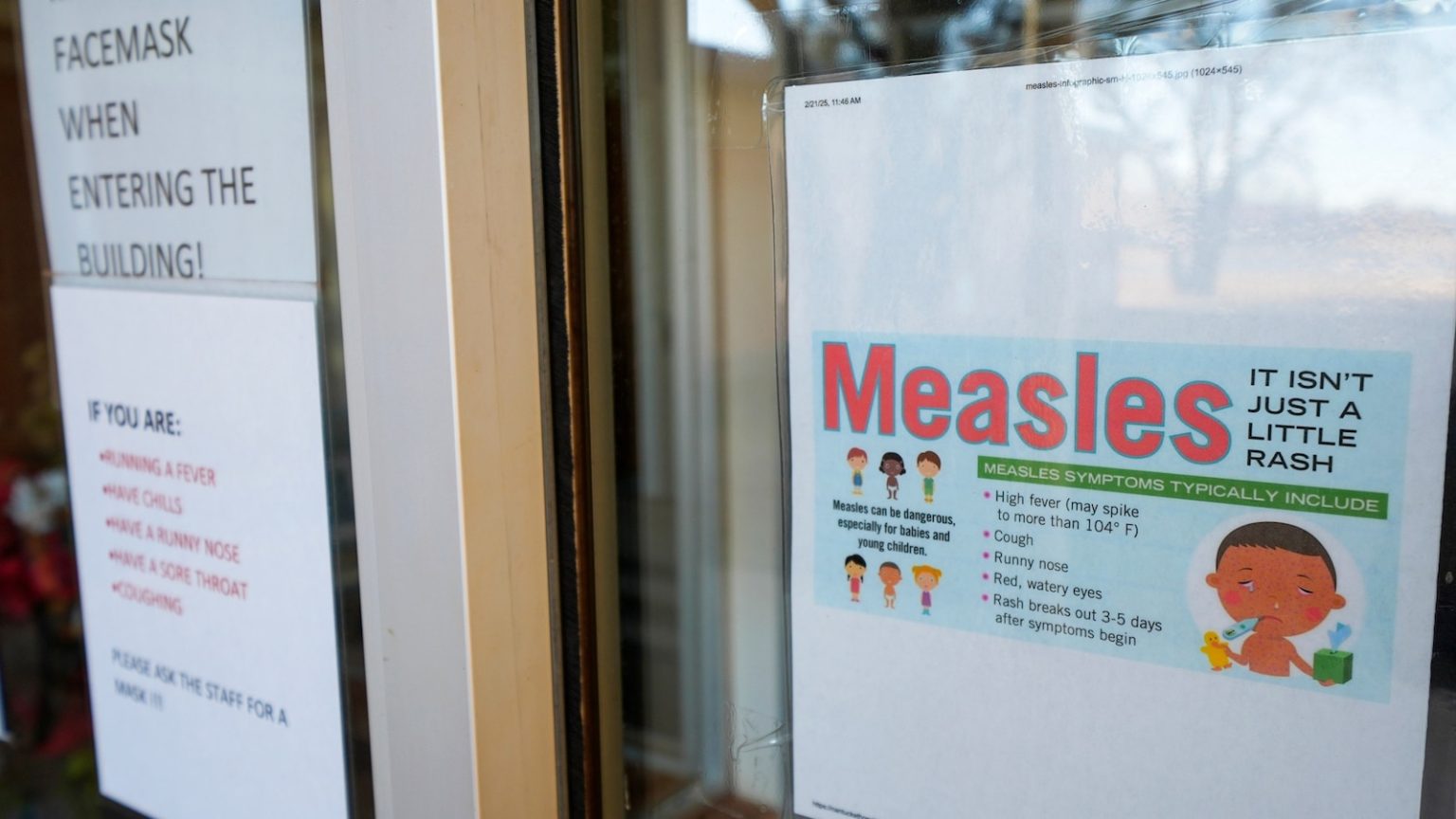The measles outbreak in western Texas continues to grow, with 561 confirmed cases, according to new data published Tuesday.
This is an increase of 20 new cases over the last five days.
Almost all of the cases are in unvaccinated individuals or in individuals whose vaccination status is unknown, according to the Texas Department of State Health Services (DSHS).
Four of the cases are among residents who have been vaccinated with one dose of the measles, mumps, rubella (MMR) vaccine. Seven cases are among those vaccinated with two doses.
At least 58 people with measles have been hospitalized so far.
Children and teenagers between ages 5 and 17 make up the majority of cases, followed by children ages 4 and under.
A sign is seen outside a clinic with the South Plains Public Health District, on Feb. 23, 2025, in Brownfield, Texas.
Julio Cortez/AP, FILE
Gaines County, which borders New Mexico, remains the epicenter of the outbreak, with 364 cases confirmed so far, DSHS data shows.
There have been two confirmed deaths linked to the outbreak, both of which occurred in unvaccinated school-aged children.
“Due to the highly contagious nature of this disease, additional cases are likely to occur in the outbreak area and the surrounding communities. DSHS is working with local health departments to investigate the outbreak,” the health department said.
As of Friday, the Centers for Disease Control and Prevention has confirmed 712 measles cases this year in at least 24 states: Alaska, Arkansas, California, Colorado, Florida, Georgia, Hawaii, Indiana, Kansas, Kentucky, Maryland, Michigan, Minnesota, New Jersey, New Mexico, New York, Ohio, Oklahoma, Pennsylvania, Rhode Island, Tennessee, Texas, Vermont and Washington.
At least five states including Indiana, Kansas, New Mexico, Ohio and Texas are reporting outbreaks, meaning three or more related cases.
The CDC says 11% of measles patients in the U.S. this year have been hospitalized, the majority of whom are under age 19.
Among the nationally confirmed cases by the CDC, about 97% are in people who are unvaccinated or whose vaccination status is unknown.
Of those cases, 1% are among those who have received just one dose of the MMR vaccine and 2% are among those who received the required two doses, according to the CDC.
The CDC currently recommends that people receive two vaccine doses, the first at ages 12 to 15 months and the second between 4 and 6 years old. For measles prevention, one dose is 93% effective, and two doses are 97% effective, the CDC says. Most vaccinated adults don’t need a booster.
Measles was declared eliminated from the U.S. in 2000 due to the highly effective vaccination program, according to the CDC. However, CDC data shows vaccination rates have been lagging in recent years.


